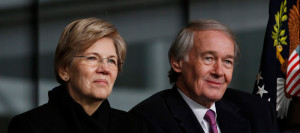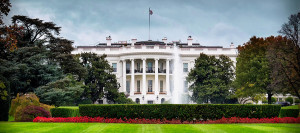Nevládní organizace Western States Legal Foundation v reakci na možné použití chemických zbraní v Sýrii a úvahy o vojenské intervenci přináší analýzu nástrojů, které k řešení této krize poskytuje mezinárodní právo.
Celá analýza: The Rush to Bomb Syria: Undermining International Law and Risking Wider War, September 2013 (anglicky)
Shrnutí (anglicky; z tiskové zprávy WSLF):
- Chemical weapons are viewed almost universally as abhorrent, and their use as a crime. All states should cooperate in identifying the perpetrators of the apparent use of chemical weapons in Syria and in pursuing their apprehension and prosecution.
- Under the current circumstances there is no basis in the United Nations Charter, the Chemical Weapons Convention, or other international law for the United States to launch strikes against Syria absent authorization by the UN Security Council or, if the Council is deadlocked, the UN General Assembly under its Uniting for Peace procedure.
- International law provides no exception for the ad hoc use of force by states in cases involving the actual or possible use of prohibited weapons, such as chemical weapons, by states with which they are not at war. Standing alone, the allegations of chemical weapons use by the Syrian government do not provide a legal basis for military action by any non-party to the conflict.
- Unilateral punitive strikes justified as a defense of the global norm against chemical weapons are unlikely to actually protect Syrians or others against use of chemical weapons and other attacks, may do little to reinforce the norm or even undermine it, and could lead to a significant increase in the level of violence throughout the region.
- There are viable international ways and means to respond to the apparent use of chemical weapons in Syria that should be vigorously pursued before the use of force is considered.
- The U.S. should present its evidence regarding use of chemical weapons in Syria to the Security Council. The Security Council should condemn any use of chemical weapons, forbid further use of chemical weapons, expand the scope of the UN investigation to include the issue of responsibility for attacks, refer the Syrian situation to the International Criminal Court for further investigation and adjudication, and call for convening of a peace conference.
- If the Security Council remains unable to act, the General Assembly should assume responsibility under the Uniting for Peace procedure.
- The U.S.-Russian effort to hold a conference to bring the Syrian conflict to an end should be reinvigorated. The U.S., Russia, and other powers that provide direct or indirect military and logistical support to the warring parties in Syria should use all available means, including cessation of support, to bring about an immediate cease-fire and a negotiated peace.
- The Chemical Weapons Convention (CWC), the most comprehensive instrument concerning chemical weapons, provides for investigation of alleged violations by specialist bodies constituted by the Convention, collective measures by states parties in response to activities prohibited by the Convention, recourse to the UN General Assembly and Security Council in cases of particular gravity, and referral of disputes to the International Court of Justice. Almost all states, 189, are party to the CWC. Syria is among the handful that are not. The agreement governing the relationship between the United Nations and the Organization for the Prohibition of Chemical Weapons, however, makes provision for instances where chemical weapons are used by actors other that CWC parties. Pursuant to CWC procedures, the Executive Council or the Conference of States Parties of the CWC should convene a special meeting to consider the situation in Syria and recommend appropriate responses by states parties and the United Nations.
- For U.S. elected officials, saying no to the easy, violent options offered by a national security and military industrial complex too long ascendant would be the hard choice, the courageous choice, and the right choice.



